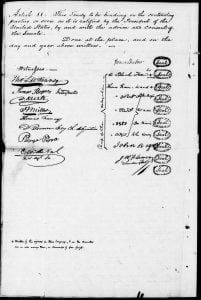Biography of Cyprian Tayrien
Fifty years or more have been added to the cycle of the centuries since Cyprian Tayrien took up his abode on the farm which is still his home and through all these years he has contributed to the agricultural development of the region, thus utilizing the natural resources of the state and adding to the general prosperity of the community, as well as to his individual fortunes. Mr. Tayrien is a native of Missouri. He was born in Clay County, in 1836, his parents being Enoch and Mary Louise (Borboney) Tayrien. The father was a French-Canadian, while the mother was … Read more

